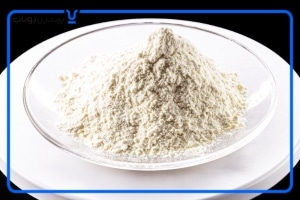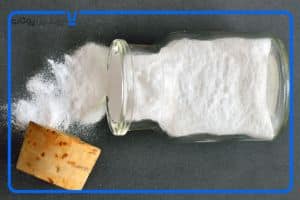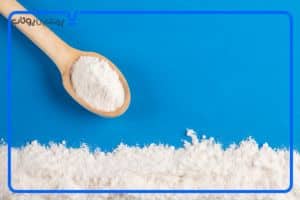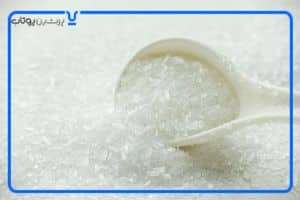سديم سيترات و قليايی كردن ادرار
سديم سيترات و قليايی كردن ادرار رابطه مستقیمی باهم دارند. داروی سدیم سیترات برای به حداقل رساندن اسیدیته در ادرار استفاده می شود. ادرار کم اسید به کلیه ها کمک می کند تا از اسید اوریک خلاص شوند. همچنین به بدن کمک می کند که از نقرس و سنگ کلیه در امان بماند. این دارو می تواند از مشکلات متابولیکی ناشی از بیماری کلیوی (اسیدوز) پیشگیری و آنها را درمان کند. همچنین باعث کاهش ناراحتی در عفونت های خفیف دستگاه ادراری مانند ورم مثانه می شود. درمان اصلی شامل عوامل قلیایی است که برای کاهش تجمع اسید در خون استفاده می شود. عوامل قلیایی می توانند شامل بی کربنات سدیم، بی کربنات پتاسیم، سیترات سدیم یا سیترات پتاسیم باشند. سیترات به جلوگیری از رسوب کلسیم در کلیه کمک می کند. سدیم (موجود در بی کربنات سدیم، سدیم سیترات یا سایر نمک های سدیم) می تواند سطح کلسیم را در خون و ادرار افزایش دهد. کاهش سطح اسید توسط عوامل قلیایی همچنین می تواند عدم تعادل الکترولیت های دیگر مانند پتاسیم و فسفر را اصلاح کند. اصلاح این عدم تعادل ممکن است به کاهش خطر ابتلا به بیماری استخوان کمک کند و از سنگ کلیه جلوگیری کند. با این حال، همه بیماران به یک روش به این روش ها پاسخ نمی دهند. چگونگی عملکرد یک روش درمانی می تواند به عوامل مختلفی بستگی داشته باشد، از جمله سن، مرحله بیماری، سلامت کلی و وجود بیماری های دیگر. این امر همچنین به این بستگی دارد که کسی در برنامه درمانی خود چقدر بی عوارض بماند و داروهای خود را طبق دستور پزشک مصرف کند.
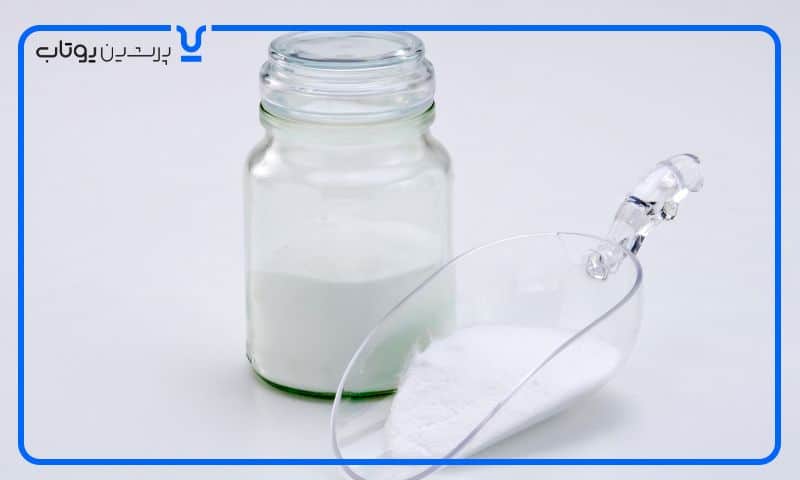
مصرف داروی سديم سيترات و قليايی كردن ادرار
اگر بیماری شدید کلیه، آسیب شدید قلب (مانند حمله قلبی قبلی)، بیماری آدیسون (اختلال غده فوق کلیه)، مقادیر بالای پتاسیم در خون (هیپرکالمی)، مقادیر بالای سدیم در خون (هیپرناترمی) یا اگر دچار کمبود شدید آب هستید، مشکلی در مری، معده یا روده دارید که بلعیدن یا هضم قرص را برای شما دشوار می کند، نباید از قرص های سدیم سیترات استفاده کنید. اگر شرایط خاصی دارید، ممکن است برای استفاده ایمن از این دارو به تنظیم دوز یا آزمایشات ویژه نیاز داشته باشید. قبل از مصرف سدیم سیترات، در صورت داشتن بیماری کلیوی، مقادیر کم کلسیم در خون (هیپوکلسمی)، نارسایی احتقانی قلب، مشکلات ریتم قلب یا سابقه حمله قلبی، فشار خون بالا، دیابت، زخم معده، تورم دست ها یا پاها یا ریه ها (ورم ریوی)، توکسمی بارداری، اسهال مزمن (مانند بیماری روده تحریک پذیر، کولیت اولسراتیو، بیماری کرون یا اگر رژیم کم نمکی دارید، اگر باردار هستید و یا قصد دارید در حین درمان باردار شوید، به پزشک خود اطلاع دهید. از عوارض جانبی جدی سیترات سدیم می توان به بی حسی یا احساس گنگی، تورم یا افزایش سریع وزن، گرفتگی عضلات، ضربان قلب سریع یا آهسته، گیجی یا تغییرات خلقی، مدفوع خونی، معده درد شدید و تشنج اشاره کرد. برای جلوگیری از عوارض جانبی معده یا روده بعد از غذا از داروی سدیم سیترات مصرف استفاده شود. همچنین ممکن است لازم باشد دارو را هنگام خواب بخورید. دستورالعمل های پزشک خود را دنبال کنید. داروی مایع را با یک قاشق مخصوص اندازه گیری دوز، نه یک قاشق معمولی اندازه گیری کنید. داروی مایع باید حداقل 4 اونس آب یا آب میوه مخلوط شود. این مخلوط را به آرامی بنوشید. داروی مخلوط را برای بهتر شدن طعم آن خنک کنید، اما اجازه ندهید که منجمد شود. درمان شما ممکن است شامل یک رژیم غذایی خاص باشد. رعایت برنامه غذایی که توسط پزشک یا مشاور تغذیه برای شما ایجاد شده بسیار مهم است. برای اطمینان از اینکه این دارو به شرایط شما کمک می کند، ممکن است لازم باشد خون و ادرار شما اغلب مورد آزمایش قرار گیرد. ضربان قلب شما همچنین ممکن است با استفاده از دستگاه الکتروکاردیوگرافی یا نوار قلب (که گاهی EKG نامیده می شود) برای اندازه گیری فعالیت الکتریکی قلب بررسی شود. دستورالعمل های پزشک خود را با دقت دنبال کنید. بدون صحبت قبلی با پزشک، مصرف این دارو را قطع نکنید. دارو را در دمای اتاق و دور از رطوبت، گرما یا انجماد نگهداری کنید. دارو را در ظرف دربسته نگه دارید و این از کاربردهای تری سدیم سیترات است.
اگر یک نوبت مصرف دارو سدیم سیترات فراموش شود، چه اتفاقی می افتد؟
دوز فراموش شده را به محض یادآوری مصرف کنید. اگر بیش از 2 ساعت در مصرف دارو تأخیر دارید، تا زمان برنامه ریزی شده بعدی صبر کنید تا دارو را بخورید و دوز فراموش شده را حذف کنید. برای جبران دوز فراموش شده، داروی اضافی مصرف نکنید . اگر بیش از حد مصرف شود، چه اتفاقی می افتد؟ اگر فکر می کنید مقدار زیادی از این دارو را استفاده کرده اید، به دنبال فوریت های پزشکی باشید.
هنگام مصرف سدیم سیترات از خوردن چه چیزهایی باید خودداری شود؟
از آنتی اسیدها استفاده نکنید. آنتی اسیدهایی که حاوی آلومینیوم یا سدیم هستند، می توانند با سدیم سیترات تداخل ایجاد کنند. از مصرف مکمل های پتاسیم یا استفاده از سایر مواد غذایی حاوی پتاسیم، خودداری کنید. از خوردن غذاهایی که نمک زیادی دارند و یا استفاده از نمک غذای اضافی در وعده های غذایی خودداری کنید. رعایت هر برنامه غذایی که توسط پزشک یا مشاور تغذیه برای شما ایجاد شده بسیار مهم است.

